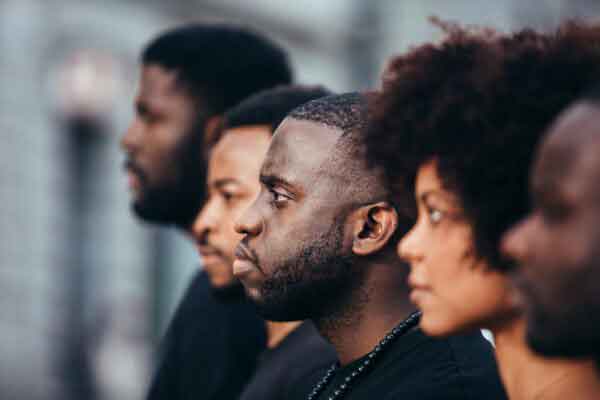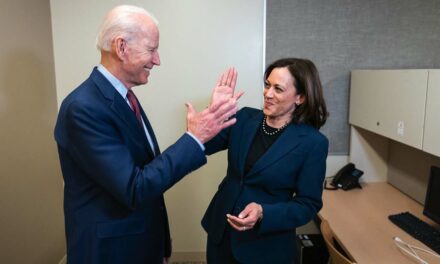Poll: Only 38% of Americans Support Reparations for Black Americans
A new poll shows that most Americans do not support paying reparations to Black descendants of enslaved people in America.

By Edward Henderson | California Black Media
A new poll shows that most Americans do not support paying reparations to Black descendants of enslaved people in America.
However, the same survey reveals that much higher percentages of respondents support reparations for Japanese Americans and Native Americans.
According to YouGov, the poll was “professionally done” and is detailed and multifaceted.
YouGov’s statement also says that the poll is timely because 2025 “marks 80 years since Japanese Americans were released from the prison camps in 1945” following the end of WWII.
YouGov is releasing the poll’s results as members of the California Legislative Black Caucus (CLBC) continue to urge their colleagues to support the 16 bills in the caucus’s “Road to Repair” reparations policy package. The bills, released at the beginning of this year, include legislation aimed at establishing a framework for paying reparations to the descendants of enslaved Black people, as well as other proposals that would improve equity and access to jobs, education, health care and more for Black Californians.
“This bill package is about repairing centuries of economic damage and abuse that was inflicted on Black Californians,” said Sen. Akilah Weber Pierson, chair of the CLBC, when the package was released in February.
Administered by YouGov, a market research and analytics firm, the poll provides snapshots of Americans’ views about the World War II incarceration of Japanese Americans and President Ronald Reagan’s order to grant them reparations.
In February 1942, approximately 120,000 people of Japanese ancestry living in California and other parts of the West Coast of the U.S.– most of whom were American citizens — were evicted from their homes and sent to guarded military camps.
The action was initiated by an executive order signed by President Franklin D. Roosevelt two months after the Japanese military attack on Pearl Harbor and the U.S. declaration of war on Japan.
Their detainment lasted roughly three and a half years in cramped military barracks surrounded by barbed wire fences and patrolled by armed guards. Many Japanese Americans returned home to find their belongings stolen and their properties sold –and they faced widespread discrimination and prejudice.
The decision to pay reparations to the impacted Japanese American families was driven by the Civil Liberties Act of 1988. Each victim was paid $20,000 (about $54,000 in 2025 dollars) per surviving internee. The act included a formal apology, and approval of payments totaling $1.6 billion. If an internee passed away before the act was passed, their direct descendants were issued the funds.
The YouGov poll found that only 13% of Americans regard the incarceration of people of Japanese ancestry in the U.S. as justifiable. Today, 64% of Americans — Democrats, Independents and Republicans — approve of the reparation payments to Japanese Americans, compared with 20% who disapprove, including approval from majorities of Democrats, Independents, and Republicans.
“I think it’s always valuable to review actions that the United States took; that’s part of U.S. history,” said Kathy Frankovic, one of the lead pollsters at YouGov who facilitated the project. “And it’s always interesting to find out what people today think about things that happened 80 years ago.”
Opinions about the incarceration of U.S. residents have changed in the intervening 83 years. In March-April 1942, the National Opinion Research Center (NORC) conducted a poll about U.S. actions, including the removal of Japanese Americans from the West Coast. The vast majority (93%) of Americans said it was the right thing to move “Japanese aliens” — the phrase used in the 1942 question – away to internment camps; only 1% called it the wrong thing to do.
For the 2025 poll, 1,116 U.S adult citizens were surveyed online and selected from YouGov’s opt-in panel. The sample was weighted according to gender, age, race, education, baseline political party identification and registration status.
On a different question asking generally about groups receiving or having received reparations, fewer support reparations to Black American descendants of enslaved people, while more support reparations to Native Americans.
Only 38% of US Citizens agreed that Black Americans should receive reparations while 43% believed they should not. Conversely, 56% support reparations for Native Americans while 27% do not.
“There are obviously racial differences in responses to questions like that. Politics plays a part in it. And I think that absent California, I don’t think a lot of Americans have been exposed to a serious discussion about the possibility of reparations for Black Americans.”
While there wasn’t a section in the poll that allowed respondents to explain their stances on the issue, Frankovic offered her thoughts.
“I probably would have people who would say, ‘You know it’s been so long.’ You’d have people who say that it would cost too much and then people who might give other answers, less favorable responses.”
The idea for the poll came from Calvin Naito who has done extensive research into the incarceration and movement surrounding the fight for reparations for Japanese Americans in the late 80’s. He co-authored a teaching case on the campaign in 1990 that offered insight into how the redress was supported. He believes that document can be an educational tool to ensure the injustice never occurs again.









